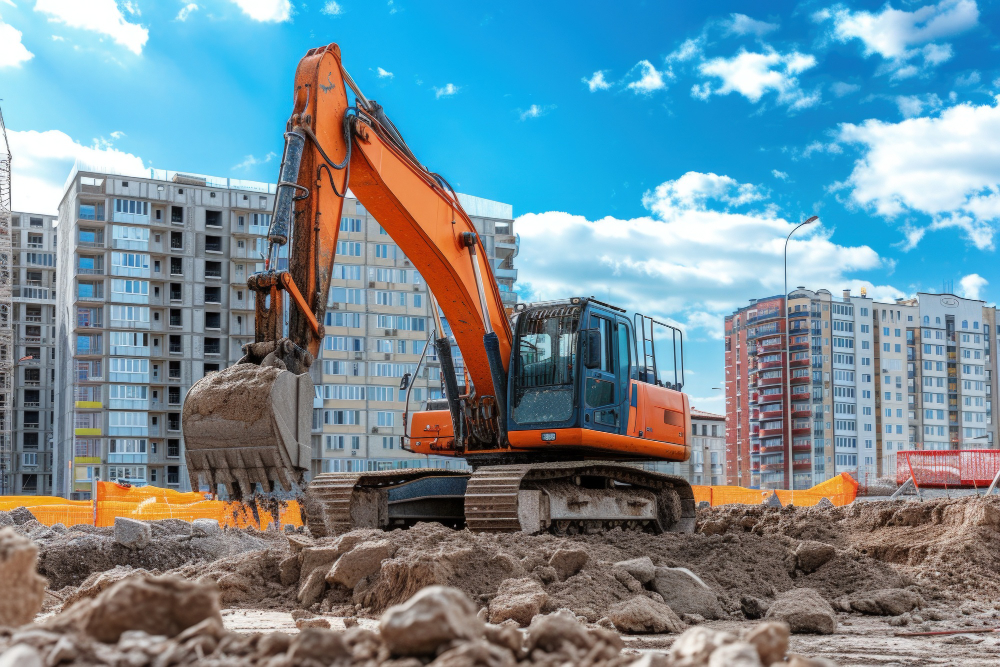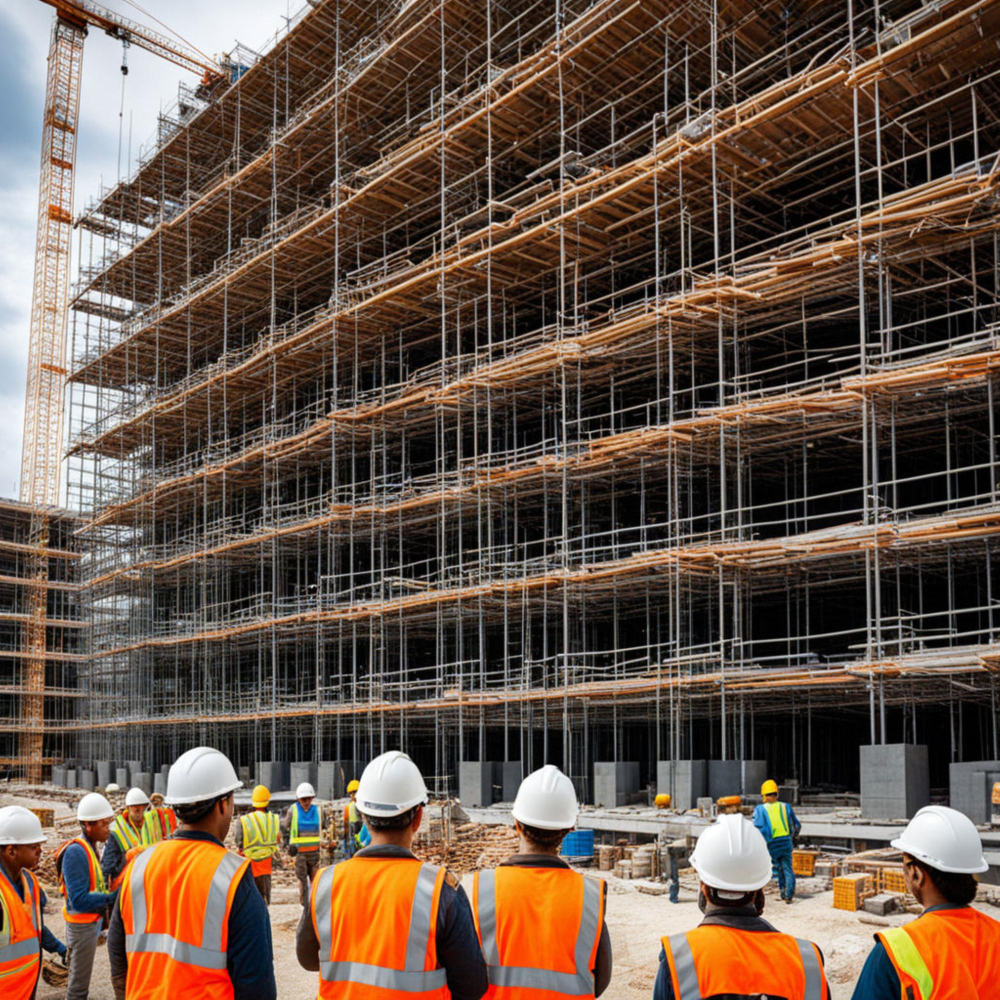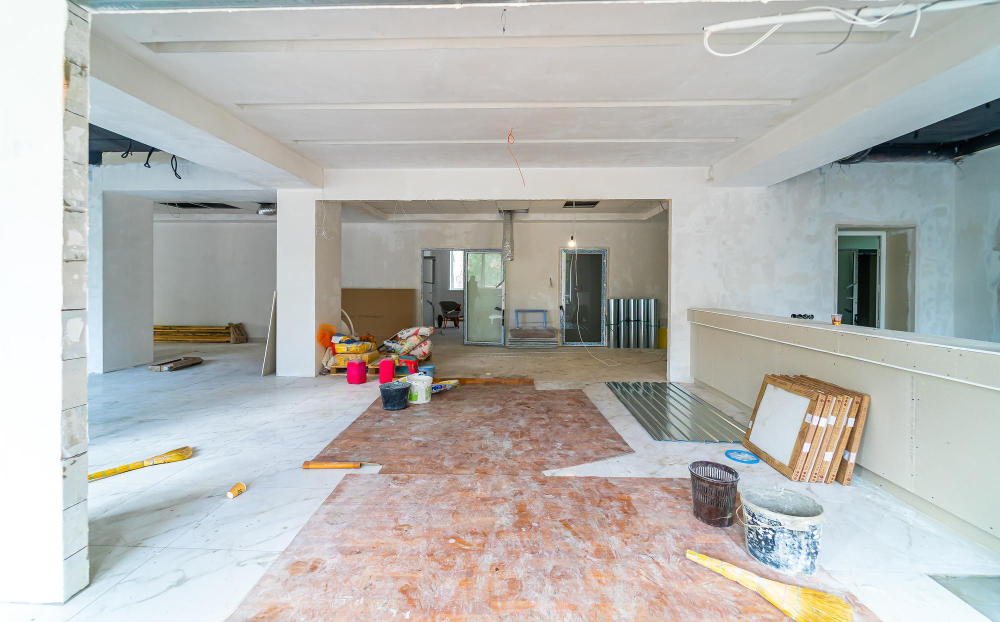A Guide to Off-plan Property Investment in Kenya
In the real estate market,off-plan property investments are the real definition of trusting the process. Why so? An off-plan property refers to a type of property bought before the completed projects, often at a discounted price. Investors rely on architectural plans and developer assurances when investing in off-plan properties, which may be under construction or just in planning.
Off-plan properties typically have lower prices initially and rise as the project progresses. Due to potential capital appreciation, investing in an off-plan property offers the opportunity for a significant return.
In this guide, we will explore what most real estate investors overlook when buying property off-plan and provide a manual that will guide you through the process of buying off-plan property.

Before you invest, investigate; here is where your inner detective can finally shine! It is time to put those internet stalking skills to good use. Research the developer everywhere, be it Instagram, X (formerly Twitter), or LinkedIn.

Who is this person you are about to trust with your hard-earned money? What is their track record, and what projects have they completed before? Thorough research and legal due diligence on the developer's reputation and financial stability are essential for minimizing risks in off-plan investment.
Dig for any skeletons in their closet, such as scandals, complaints, or shady dealings. You will also need to talk to the developer directly—or, as I call it, interrogation time! But beware: Do not believe everything they tell you until you have verified it independently.
Scammers and fraudsters lurk everywhere, and you do not want to be their next victim. A credible developer should be transparent in communicating project progress and financial management.
Verifying statutory approvals protects buyers from fraudulent schemes, unsafe investments, and legal entanglements. It is critical to seek legal advice from a lawyer experienced in conveyancing law to thoroughly review all the legal documents and approvals, including requisite approvals from the County Government, NEMA, and any other relevant authority.

National Environment Management Authority (NEMA) ensures that real estate developments meet environmental regulations and standards. The developer must obtain an Environmental Impact Assessment (EIA) license to ensure the project does not adversely affect the environment. Projects without this approval may face legal challenges or even be halted. This is crucial for developments near water bodies, forests, or protected lands.
Investing in a property that lacks NEMA approval can expose you to risks such as future demolition, fines, or additional costs for environmental remediation. Always check if your developer has the NEMA certification and if there are any environmental objections to the project.
The CR12 form on the eCitizen platform is an official document provided by the Registrar of Companies in Kenya. It shows a company's ownership (such as the developer or their business entity) and confirms whether it is legally registered with the national construction authority. Verifying the developer's CR12 status ensures you deal with a legitimate entity, not a fraudulent or ghost company.
Without a CR12 check, you could deal with unregistered or nonexistent developers. This step prevents scams, as you can verify the company's legal owners and see if there are any disputes or red flags in their history.
Each county in Kenya has its own set of regulations, and developers need to secure approvals from the county government before commencing any project. These may include permits for construction, land use changes, and even architectural designs. For example, in Nairobi County, a developer must get approval from the Nairobi City County before building.
Lack of county approvals can result in legal issues, delayed projects, or demolition orders. Buyers should request proof of all relevant county approvals to ensure the property complies with local regulations.
Ensure that the property has proper electricity connections and approvals from Kenya Power.
This is especially important for properties near water bodies or those dependent on water extraction.
If the property is near an airport or flight paths, it must comply with KCAA's height and construction regulations.
Overlooking any of these board approvals may lead to operational challenges, such as a lack of utilities (electricity or water) or height restrictions, which can affect the livability or resale value of the property.
The project execution team comprises the professionals responsible for managing and completing the construction project. This team typically includes architects, engineers, project managers, and contractors. Their primary role is to ensure the project is delivered successfully and meets established deadlines, budgets, and quality standards.

Check if all team members are registered with the relevant professional boards and authorities, such as the National Construction Authority (NCA) and the Board of Registration of Architects and Quantity Surveyors (BORAQS). This ensures they adhere to industry standards and regulations.
Experience and Track Record: Review their previous projects to assess their experience. Look for completed developments that showcase their ability to deliver on time and within budget.
Communication and Responsiveness: Effective communication is crucial. Ensure the team is accessible and responsive to your inquiries throughout the project.
By scrutinizing the project execution team, you can gain confidence in their ability to manage your investment successfully.
Be aware of hidden costs, such as service fees, which can significantly impact your total investment. These charges often cover maintenance, security, and communal services but vary widely among developments.

Request a comprehensive breakdown of all service charges from the developer. This should include ongoing monthly fees, one-time charges, and potential increases.
Some buildings maintain a "list of shame" for those who do not pay service fees, such as security or management fees. Before investing in any properties with excessive or unexpected fees, research these listings to avoid unpleasant surprises.
If service fees seem high, don’t hesitate to negotiate or ask for clarity on what the charges cover. Understanding the value provided can help you assess if the fees are justified.
Being proactive about service charges can help you avoid financial strain and make a more informed investment decision.
Developers often provide renders or detailed diagrams for off-plan properties, which allow investors to visualize the design and layout. It is crucial to thoroughly review these materials to ensure they align with your expectations.
When considering the completed developments, visit similar projects by the same developer to assess the quality of workmanship and adherence to the original plans. Look for aspects such as Materials Used to verify the quality of materials and finishes. Ensure the layout matches the plans and meets your needs.

Check if promised amenities, such as parking, security, or recreational facilities, are included and up to standard. Ask previous buyers for feedback about their experiences, including any discrepancies between the renders and the final product.
Confirming these details will help you make a more informed decision and reduce the risk of disappointment once the property is completed.
Confirm the financing methods and conduct an official search on the developer’s financial status. Investigate if the developer has over-borrowed or if the property is being resold. Look for projects with a good track record that do not take too long to complete.
Inquire about their financing sources—do they rely on bank loans? Also, check for flexible payment plans, particularly milestone payments. Many developers may fail to deliver on their promises due to financial constraints or unscrupulous practices, so ensure that all terms are clearly outlined in the sales agreement, including the construction period and initial deposit required.
Investing in the off-plan property market in Kenya can be a lucrative venture if approached with careful consideration and due diligence. Consult a qualified lawyer to review all legal documents, including the sale agreement and payment plan. Ensure you understand the contract's legal implications and secure necessary approvals from relevant authorities.
Understanding your budget and financial capacity will help you make informed decisions. Off-plan purchases often come with flexible payment plans and construction milestone payments, allowing financial flexibility. However, ensure the payment schedule aligns with your financial capacity and investment goals.
Monitor progress regularly to ensure the developer meets agreed-upon milestones. This helps you manage potential risks like construction delays or developer failures.
Once completed, an off-plan purchase can generate a rewarding investment through capital appreciation and rental income. We have ongoing off-plan investments for you to consider . Book a consultation for more information and insights.
Depending on the property type and location, you can start investing in real estate in Kenya with as little as Ksh 1 million. However, initial deposits for off-plan properties can vary, so it’s essential to research specific projects.
Yes, Kenya is considered a good place to invest in real estate due to its growing economy, increasing urbanization, and rising housing demand. However, it’s important to conduct thorough market research.
Returns on real estate investment in Kenya typically range from 8% to 15% annually, depending on location and property type. Off-plan properties may offer higher appreciation potential.
Marketing off-plan properties involves using digital platforms, social media, and real estate listings. Highlighting architectural plans, flexible payment options, and the developer's reputation can attract prospective buyers.
Administrator. (2024, August 2). Securing off-plan properties in Kenya. Njaga & Co. Advocates. https://njagaadvocates.com/securing-off-plan-properties-in-kenya/#:~:text=Off%2DPlan%20Properties-,Definition%20and%20Context,in%20that%20property%20development%20concept.
Admin. (2024a, January 8). Important considerations buying off-plan. Sarange Mwaniki & Company Advocates. https://smc-legal.com/2024/01/08/important-considerations-buying-off-plan/
Mwangi, S. (2024, August 8). Looking to buy an off-plan apartment? here’s how to mitigate your risks. MMW Legal. https://mmw.legal/looking-to-buy-an-off-plan-apartment-heres-how-to-mitigate-your-risks/
Ndungu, D. (2024, January 22). A lawyer’s guide on how to secure an off-plan investment. Diana & Jacklyne Partners Advocates. https://www.dnjlaw.co.ke/blog/uncategorized/a-lawyers-guide-on-how-to-secure-an-off-plan-investment/
Off-plan property. Off-plan property - Designing Buildings. (n.d.). https://www.designingbuildings.co.uk/wiki/Off-plan_property
Okuoro, S. (2023, October 25). What you should consider before buying a home using off-plan method. The Standard. https://www.standardmedia.co.ke/dr-pesa/article/2001484092/what-you-should-consider-before-buying-a-home-using-off-plan-method
Wikimedia Foundation. (2024, March 5). Off-plan property. Wikipedia. https://en.wikipedia.org/wiki/Off-plan_property